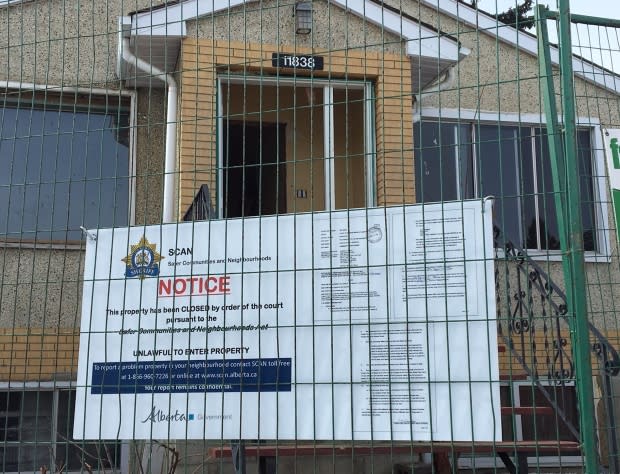Boyle-McCauley community wants more action on problem properties
The number of inspections of problem properties in Edmonton has increased tenfold in the year since a new team, uniting specialists from the city, the police, Alberta Health Services and other agencies, was created.
But residents of several downtown communities are keen to hear more details about the accomplishments of the Residential Living Governance Committee, which began operations in June 2018.
"We want to hear success stories," McCauley community league president Greg Lane said at a recent public meeting to hear from the committee. "We want to see, are you moving the needle in the right direction? What's the impact? It's all measurable things. They're tangible things."
Sgt. Sean Jenkinson told residents gathered at the meeting that in the year since the team launched, EPS has been part of 122 inspections — compared to an average of 12 to 16 in the years before.
That number doesn't include AHS health enforcement orders or any bylaw infraction data from the city. The city also tracks bylaw complaints about nuisance properties on its open data map.
At the community meeting, the group explained its process, which includes weekly meetings as well as daily inspections on properties that have been flagged as being of concern.
The RLGC consists of representatives from Alberta Health Services, the Edmonton Police Service and the City of Edmonton. Depending on the issues being investigated, the team can also tap into resources like Occupational Health and Safety and the Edmonton Fire Service.

Justin Lallemand, who serves as the committee's chair and is also a member of the Public Safety Compliance Team, is working to collect data from all agencies to better understand RGLC's impact. The data analysis is not complete.
It isn't clear who the committee reports to or which agency would examine such an analysis, a concern raised by Ward 6 councillor Scott McKeen.
"We have to figure out a way to better communicate to the public that that work is ongoing," McKeen said. "How to contact that group. How you can even help that group with some data gathering.
"Secondly, because it's so multi-jurisdiction and multi-dimensional, I need to figure out where the buck stops and who that group reports to."
McKeen also thinks there should be more public education about what the committee does. Lane agrees.
"Public visibility into these things that especially directly impact livability in your community — it should have a public oversight, absolutely." Lane said.
Residents in attendance were interested in hearing about properties that have been dealt with in the Boyle Street and McCauley areas.
Lane described how well police helped with a squatter problem on a property near him that had been slated for demolition.
"We've had homeless people in there that have had to be removed," Lane said. "A couple that lived in the garage, those kinds of things. But I found the police to be incredibly responsive."
Credit for that, he said, goes to the beat officers in the neighbourhood that work hard to build relationships with community members.
Lane, like others in the area, is looking for legislation to hold property owners responsible for the lack of care and maintenance on homes or troublesome tenants.
"It's well within their capability to make things stick," Lane said. "If what they're doing isn't painful, then maybe get a bigger stick."

